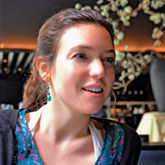
Retirement may gleam like a beacon for those toiling five days a week for their living, but when life beyond work finally arrives, it can sometimes be a little disappointing. “Retirement is boring,” declares John Nicholson, when we met one sunny afternoon in his Petaling Jaya home, “but I’m lucky. I have found something to do that I love.” It is also, wonderfully, a passion that he is able to share with both local people and expats who are willing to open their minds to the past.
John retired seven years ago after running his own company, Falcon Press, for 18 years in Malaysia. Prior to that he worked for Oxford University Press, a job that transported the Cambridge student far away from home (his first position was in Pakistan) and never washed him back. It was a job he took because no other positions came his way – “I wanted to be a publisher and this was the only job I could get!” he laughs – but it is one that proved to be rewarding and fascinating, taking him all over the world and ensuring his interest in books was sustained and fuelled throughout his life.
It also brought him to Malaysia in 1968, the country which subsequently provided a charming wife (Hayati) and a place to call home. “It’s a pretty nice place,” he concedes begrudgingly, but his actions speak louder than his words: when Oxford University Press tried to send him back for a more senior role in the UK, he refused. He subsequently left the company and set up his own publishing company here in KL, before retiring a few years ago.
With all the elements in place – living in Malaysia, knowledge of books, and a degree in history from Cambridge – John’s most recent endeavors seem a logical step. He collects antique and secondhand books, maps, and ephemera, predominantly of the country and the region, and amasses his collection in a lovely garden room of his home. It is here, when he sits down amidst his collection, that John comes alive.
Shelves and draws teem with old automobile guides; menus from the grand, round-the-world cruise on the Franconia in the 1920s; maps of every inch of Malaya; 19th-century parliamentary papers; New Straits Times Annuals from 1939; and cigarette cards to name just a few, and everything sings of a distant past, offering a tantalizing glimpse into a different world to the one we inhabit today.
Two packing cases contain over 500 old Malay textbooks, many in English and all providing unexpected sources of historical context: “Lesson 18 – A Kelentong Man. The case is made of wood and glass. There are many things inside the case. The large boxes are full of things for sale.” John indeed has a real fondness for these things, often spending up to ten years in his search for the whole set of certain books and always getting a thrill when he locates something he has long sought.
He is saddened by the level of ignorance of history and does his bit by giving talks annually at the Badan Warisan to educate anyone who is interested on the stories behind the printed matter. “History is taught depressingly,” he declares. “It’s presented as a tedious subject. I should know – I published a lot of such textbooks long ago.”
History is clearly important to John, and his job as a publisher threw him into the path of many book dealers and sellers who provided the beginnings of his collection, and allowed him to combine his career interest with his fascination for the past. His collection is intriguing, bringing to life the ages past, not in the large scale happenings, but in the small intricacies that make up real life – tickets, pamphlets, maps, books, and even travel guides.
His passion may be strong, but he is not overly protective of his collection. “When I die, I will leave it all to Badan Warisan,” he says with nonchalance. “My children aren’t interested, and my wife thinks it takes up too much space already!” He is also happy to sell to those who are keen to own a bit of printed history, and he finds that, at the bazaars he attends with his collection, maps tend to be the most popular: “I suppose they are easier to transport,” he points out, “which is good for them and for me!”
Despite his wife’s worries about the lack of space, John continues to buy faster than he sells; it seems he can’t resist. “No matter what you pay for such things, their value will always increase,” he says, confidentally. “These things will never be re-printed. In tropical climates, they slowly deteriorate through exposure to heat, damp, and nibbling insects. They are gradually being lost, and so demand just continues to rise.”
We can only hope that interest in the past rises concurrently; “History should bind people together,” says John. “It can teach us important lessons.” If only, he might have said, we are willing to listen.
———————————————————————————————————
If anyone is interested in buying or selling, contact John Nicholson on [email protected]. The Badan Warisan, or the Heritage of Malaysia Trust, is a voluntary organization committed to celebrating and preserving the heritage of the country. For more details on their events and how to become a member, visit www.badanwarisan.org.my.
———————————————————————————————————
Source: The Expat March 2013
Read more:
- Renewing a Passport Brings Back Years of Travel Memories
- The Expat Mingle at Qba
- Seven Safety Tips for Riding a Taxi in Malaysia
What are your thoughts on this article? Let us know by commenting below.No registration needed.
"ExpatGo welcomes and encourages comments, input, and divergent opinions. However, we kindly request that you use suitable language in your comments, and refrain from any sort of personal attack, hate speech, or disparaging rhetoric. Comments not in line with this are subject to removal from the site. "


















